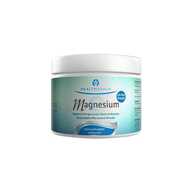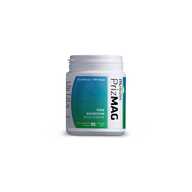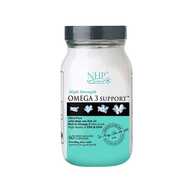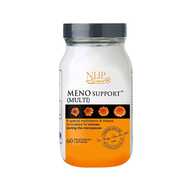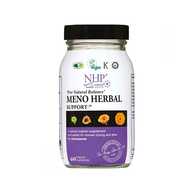The theme for World Menopause Day on 18th October 2023 is the impact of menopause on cardiovascular health.
Hormone changes associated with the menopause can have wide ranging impacts on heart health.
Menopause, a natural phase in a woman's life marking the end of her reproductive period, can significantly impact cardiovascular health due to the decline in oestrogen levels that accompany it. Oestrogen is believed to have a protective effect on the heart; it helps in maintaining the flexibility of the arterial walls, ensuring smooth blood flow. Oestrogen is also known to have a favourable impact on cholesterol levels by raising high-density lipoprotein (HDL, the "good" cholesterol) and lowering low-density lipoprotein (LDL, the "bad" cholesterol).
When oestrogen levels drop during menopause, these protective effects diminish, potentially leading to stiffer arteries and an unfavourable lipid profile, both of which are risk factors for cardiovascular diseases. Additionally, other changes associated with menopause like weight gain and alterations in metabolism may further exacerbate the risk of cardiovascular issues. Therefore, the phase of menopause represents a time of increased cardiovascular risk for women, necessitating enhanced monitoring and preventative measures to maintain heart health.
So in particular women might see these changes happening during menopause. All of these can have an impact on heart health.
- Weight gain especially around the waist
- High cholesterol – after the menopause, levels can increase
- High blood sugar – the body can’t control sugar levels (glucose) as well
- Blood pressure – the blood vessels may not respond as well to changes causing an increase in blood pressure
- During the menopause, many women also feel more worried than usual. Relaxation techniques such as meditation and yoga can help with anxiety and stress.
What can I do to reduce my risk of heart disease and improve symptoms?
By making healthier lifestyle choices, these will help lower or maintain your blood pressure and cholesterol levels.
Make small changes in your daily routine like incorporating a walk at lunch time, using the stairs instead of an escalator or lift, create good sleep habits and reduce screen time.
Eat a healthy, balanced diet incorporating a wide variety of foods. Reduce foods that are high in saturated fat like red meat, cheese, chocolate and butter.
Reducing sugar in your diet especially sugary drinks as these drinks cause problems with insulin resistance.
Eat a variety of fruit and vegetables, nuts and seeds, beans and lentils – all naturally high in vitamins and minerals.
Swap meat for fish (oily or white) and try eating vegetarian meals at least twice a week.
The top 3 supplements for heart health support during menopause:
Omega 3 Essential Fatty Acids
Not only are Omega 3 fatty acids good for our hearts, but they have also been shown to reduce the frequency of hot flushes, depression and mood disturbances as well as beneficial for blood sugar regulation.
If you don’t like eating fish or are a vegetarian/vegan, you may struggle to get enough of this heart friendly nutrient in your diet.
Research shows that EPA found in fish oil helps maintain a healthy heart and circulatory system. There are a number of Omega 3 supplements available – in terms of menopause support for heart as well as brain and joint health, one of the most widely recognised brands is Eskimo 3 Omega 3 oil.
Eskimo 3 fish oil is a high strength omega 3 supplement which supports heart function, lowers blood pressure and triglycerides. As omega 3 fatty acids can’t be made by the body, they must be obtained from food or supplementation.
It is estimated that 89% of Irish people are not consuming sufficient oily fish in their diet, so often there is a need to take an Omega 3 supplement to safeguard your heart.
Coenzyme Q10
Coenzyme Q10 (CoQ10) is an antioxidant that your body produces naturally. Its job is to help your food turn into the energy you need and it also helps fight damage to your body’s cells.
Levels of CoQ10 decrease as we age. Low levels in the body may mean a greater risk for problems like heart disease. It is found in small amounts in meat, fish and nuts.
It is often recommended to take a CoQ10 supplement when you are on statins for lowering cholesterol to help with supporting heart health.
For overall energy boost in the body during menopause, CoQ10 is an excellent supplement which has been well researched for its health benefits.
Magnesium
Magnesium is essential for healthy heart rhythms. It also plays a role in lowering blood pressure as well as regulating blood sugar. It can impact multiple areas of health for peri and postmenopausal women. Magnesium is found in every cell of the body, essential for the functioning of over 300 enzymes. Diet sources include green leafy vegetables, nuts and seeds, beans, oats, dark chocolate and wholegrains. While there is a variety of foods which contain magnesium, it can be difficult to get enough from diet alone, especially as we age.
Magnesium comes in different forms but the one that seems to be best absorbed by the body and has the most calming effect is magnesium bisglycinate, making it ideal for menopause symptoms.
If you are on any medication or have a health condition, check with your doctor or pharmacist before introducing any supplement into your daily routine.




